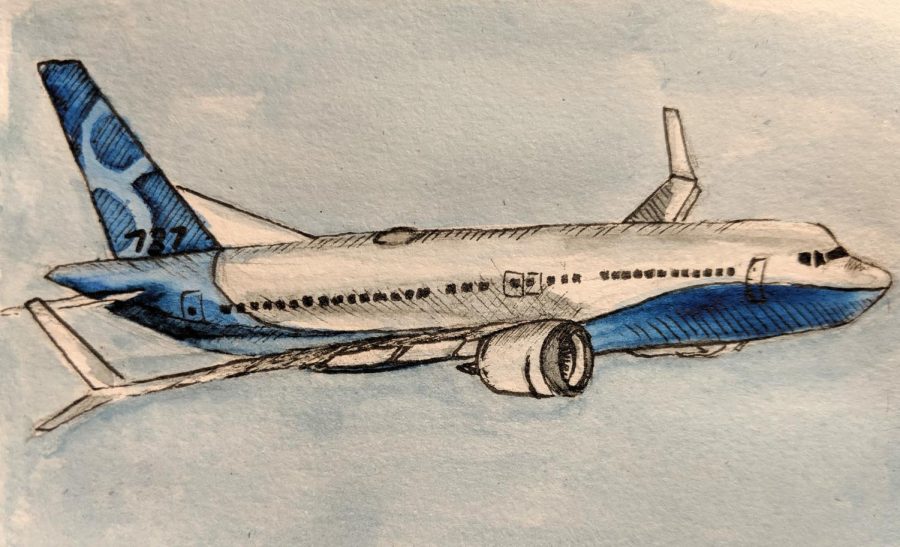The Slowing of Boeing
April 8, 2019
When tragedy struck Ethiopian Airlines Flight 302 on March 10, killing all 157 people aboard, the world watched in horror and disbelief. When realizations emerged that a Lion Air jet of the same best-selling model, perhaps uncoincidentally, suffered a similar accident just months before, killing all 189 people aboard, the world reacted with fury and vehemence.
Following reports that Flight 302’s crash was not an isolated incident like many previously believed, international airlines and aviation safety agencies, totalling over 30, one-by-one suspended all operations of the jet involved — known as the Boeing 737 MAX. By the day after the crash, Boeing’s stock had already dropped a whopping 8%. Despite the quick backlash from across the globe, the Federal Aviation Administration maintained its approval of the model until growing pressures eventually prompted their decision to ground all Boeing 737 max aircrafts on March 13.
Information retrieved from the black boxes of both Lion Air and Ethiopian Air indicated a clear similarity between the crashes, furthering the faltering confidence in the Boeing aircraft. According to an investigation conducted by the Dallas Morning News, there were five separate complaints filed in a federal database by pilots months prior to the tragedies, all detailing the same complications that the two doomed flights endured right before their demise: first, a fault within the autopilot system, then a tumultuous ascent, and finally a sharp plummet which these two flights failed to recover from. [1]
It has become increasingly obvious that there is a great flaw within the systems of the Boeing 737 Max, yet Boeing has increased its efforts in defending the company. Following the first Indonesian crash, Boeing promised to roll out software updates for the autopilot system around the end of 2018, which it never did. Boeing now faces huge public scrutiny, but instead of remodeling the plane, Boeing only guaranteed the prompt release of the software changes it promised months ago with minimal pilot training.
Why hasn’t Boeing faced the proper repercussions? There are people all over like Sam Kurtzman ‘20, who believes that “Boeing should be held accountable because it is absolutely inexcusable that the company allowed this to happen not once, but twice”, and Arohi Dandawate ‘20, who shares the view that “Boeing needs to face the same consequences for this repeated occurence”. For one, experts have not reached a solid conclusion that both crashes were rooted from the same cause. Additionally, Boeing maintains a stronghold in Washington. The company has reportedly invested over $18 million in lobbying in the past year and over $8 million in campaign donations to both Democrats and Republicans since 2016. [2] This hidden world of politics could be the reason for the delay in the FAA decision to ground all 737 Max’s.
More information continues to reveal itself as each day passes, such as how the Lion Air pilots were not even aware of the existence of the automated system that ultimately led to the flight’s demise. Despite the possibility that the two crashes were purely coincidental, all signs point towards a deeper, overarching problem in a design and a colossal company’s mishandling of its wrongdoings.
[2] https://www.nytimes.com/2019/03/15/opinion/boeing-crash-contractor-trump.html

